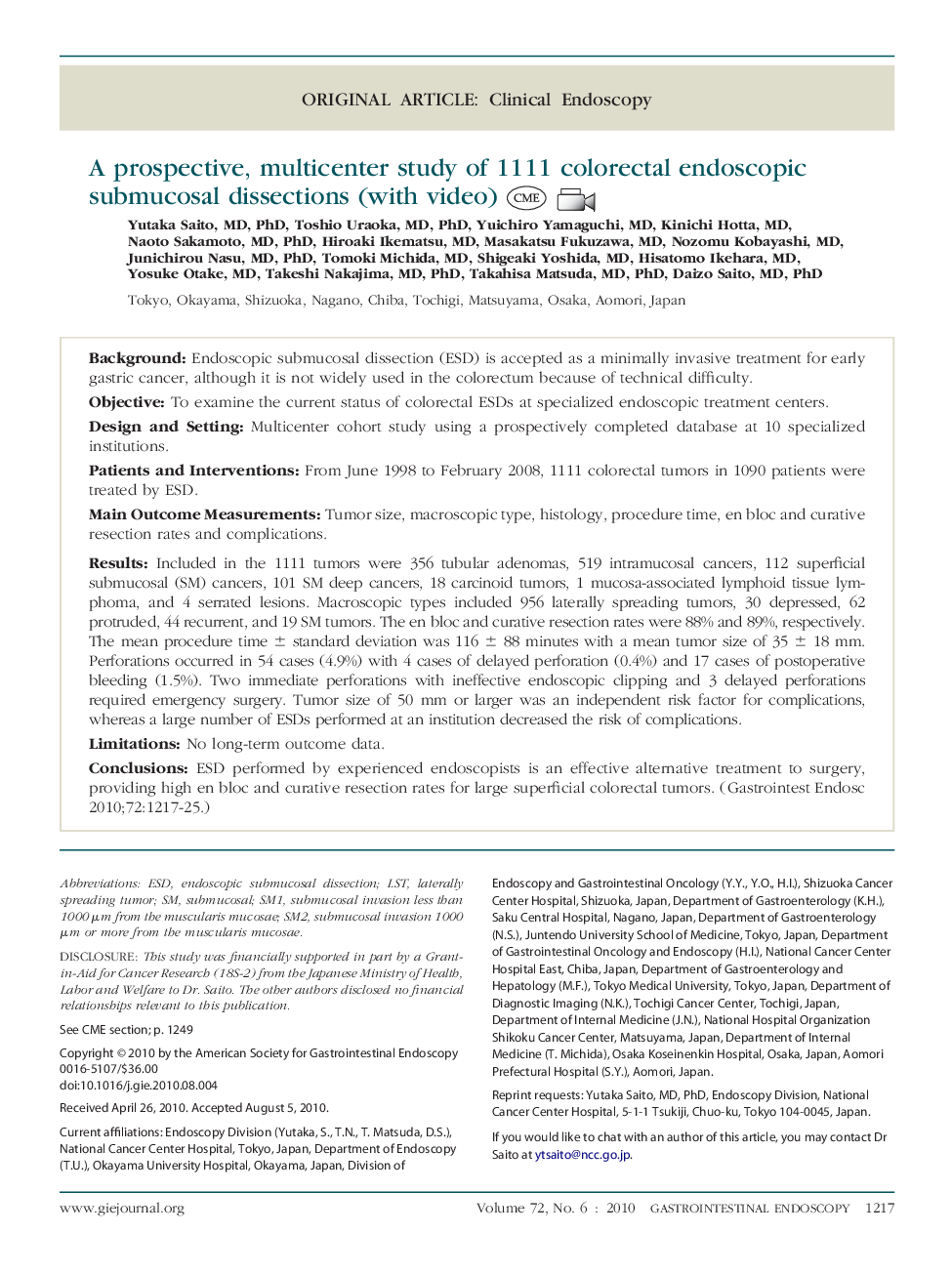| Article ID | Journal | Published Year | Pages | File Type |
|---|---|---|---|---|
| 3306022 | Gastrointestinal Endoscopy | 2010 | 9 Pages |
BackgroundEndoscopic submucosal dissection (ESD) is accepted as a minimally invasive treatment for early gastric cancer, although it is not widely used in the colorectum because of technical difficulty.ObjectiveTo examine the current status of colorectal ESDs at specialized endoscopic treatment centers.Design and SettingMulticenter cohort study using a prospectively completed database at 10 specialized institutions.Patients and InterventionsFrom June 1998 to February 2008, 1111 colorectal tumors in 1090 patients were treated by ESD.Main Outcome MeasurementsTumor size, macroscopic type, histology, procedure time, en bloc and curative resection rates and complications.ResultsIncluded in the 1111 tumors were 356 tubular adenomas, 519 intramucosal cancers, 112 superficial submucosal (SM) cancers, 101 SM deep cancers, 18 carcinoid tumors, 1 mucosa-associated lymphoid tissue lymphoma, and 4 serrated lesions. Macroscopic types included 956 laterally spreading tumors, 30 depressed, 62 protruded, 44 recurrent, and 19 SM tumors. The en bloc and curative resection rates were 88% and 89%, respectively. The mean procedure time ± standard deviation was 116 ± 88 minutes with a mean tumor size of 35 ± 18 mm. Perforations occurred in 54 cases (4.9%) with 4 cases of delayed perforation (0.4%) and 17 cases of postoperative bleeding (1.5%). Two immediate perforations with ineffective endoscopic clipping and 3 delayed perforations required emergency surgery. Tumor size of 50 mm or larger was an independent risk factor for complications, whereas a large number of ESDs performed at an institution decreased the risk of complications.LimitationsNo long-term outcome data.ConclusionsESD performed by experienced endoscopists is an effective alternative treatment to surgery, providing high en bloc and curative resection rates for large superficial colorectal tumors.
